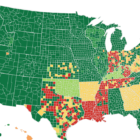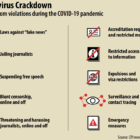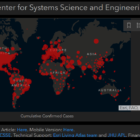#GIJNelectionWatchdog
Election Tips from #gijnElectionWatchdog Week 2
|
In week two of #gijnElectionWatchdog, GIJN’s project to arm US reporters with effective tools for election accountability coverage included a comprehensive election equipment database, campaign finance deep access, daily time-saving tools, and the rules for all 50 states in a single spreadsheet.







